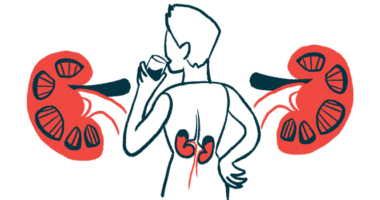Intravenous Immunoglobulin Quickly Lowers Disease Activity in AAV Patients, Review Study Finds

Intravenous immunoglobulin (IVIG) therapy leads to a fast and significant reduction in disease activity, as well as in the levels of inflammatory biomarkers, in people with ANCA-associated vasculitis (AAV), a review of several studies found.
The study, “The therapeutic efficacy of intravenous immunoglobulin in anti-neutrophilic cytoplasmic antibody-associated vasculitis: a meta-analysis,” was published in Rheumatology.
IVIG is a form of therapy in which patients are given a biological agent containing a pool of different antibodies derived from the plasma of healthy blood donors. Originally developed as a form of antibody replacement therapy to prevent serious infections in people with compromised immune systems, researchers later showed it can also be used to neutralize harmful antibodies or immune responses in those with autoimmune conditions.
“IVIG for AAV therapy was developed in the 1990s, following its use in Kawasaki disease, a medium vessel vasculitis. In the last few decades, several clinical studies have examined the therapeutic effects and shown the potential benefit of IVIG in patients with AAV,” the investigators wrote.
However, only one of these studies followed the design of a classical randomized and placebo-controlled trial. The others were uncontrolled trials, “which only provided the tendency of effects of IVIG on AAV patients.”
This review focused on summarizing the main findings of studies assessing IVIG therapy in AAV patients.
Relevant studies were identified through Pubmed and Google Scholar, and selected to be included in the systematic review by two independent authors. Original research studies that met the inclusion criteria were also used as source material for a meta-analysis to estimate the efficacy of IVIG therapy in AAV patients.
From the 220 original research studies identified, nine met the inclusion criteria — including six observational studies, one controlled clinical trial, one case-control study, and one retrospective study. The nine studies were published between 1991 and 2017.
In all of them, IVIG was administered to AAV patients with active disease as an immunomodulatory therapy.
Pooled study data found that six months after IVIG therapy, AAV patients had a significant lessening of disease activity, measured by the Birmingham Vasculitis Activity Score (BVAS).
In addition, two of the four studies that also evaluated the effects of IVIG on the production of anti-neutrophil cytoplasmic autoantibodies (ANCA) reported a significant decrease in ANCAs following IVIG therapy. Likewise, four of the eight studies that analyzed the effects of IVIG on the levels of C-reactive protein (CRP, a marker of inflammation) reported a reduction in CRP within six months of treatment.
Subgroup analyses were also conducted into patient groups treated only with IVIG, to “avoid the effects of concomitant immunosuppressants and estimate the sole effect of IVIG on AAV,” the investigators wrote.
These analyses showed that IVIG led to a significant reduction in disease activity, as well as in the levels of the inflammatory biomarker CRP, within 17 days of treatment.
“In conclusion, IVIG was associated with rapid improvements in disease activity and related biomarkers in patients with AAV. Our results are based on before-after analysis of uncontrolled studies; therefore, further RCTs [random and controlled trials] are still needed to confirm the therapeutic effects of IVIG on AAV,” the scientists wrote.






